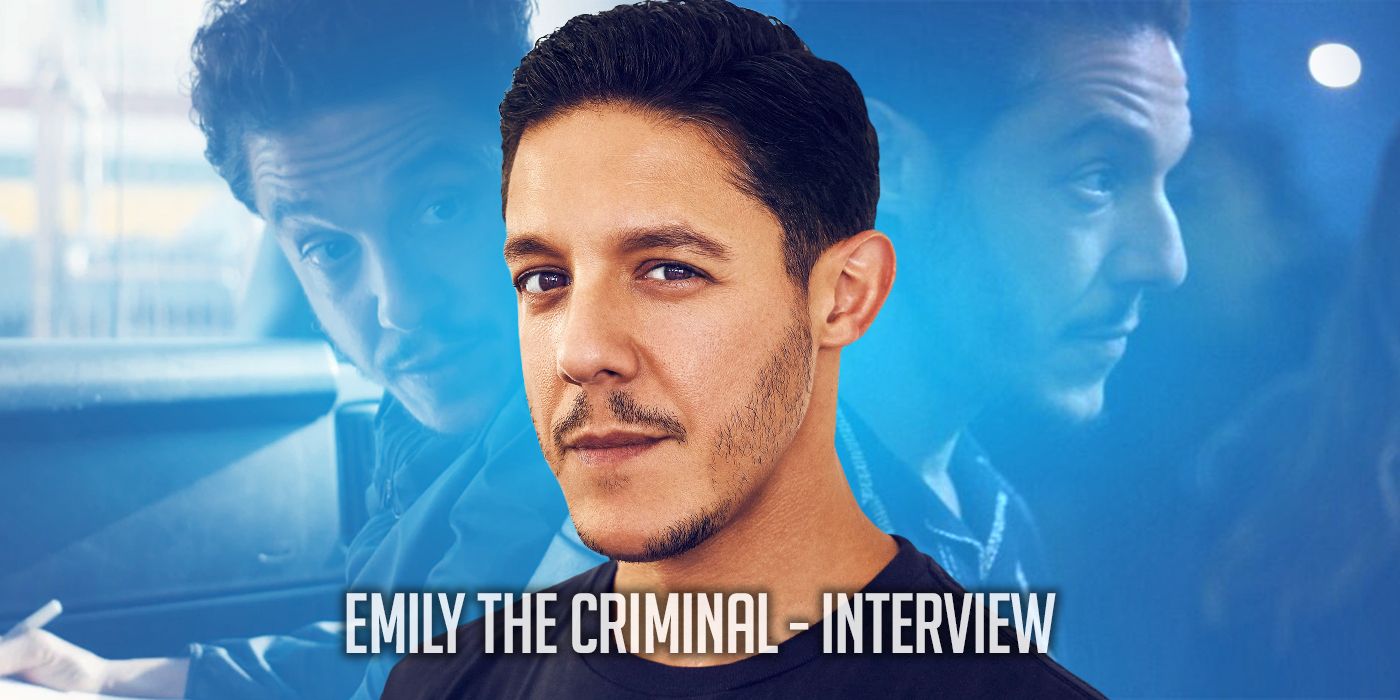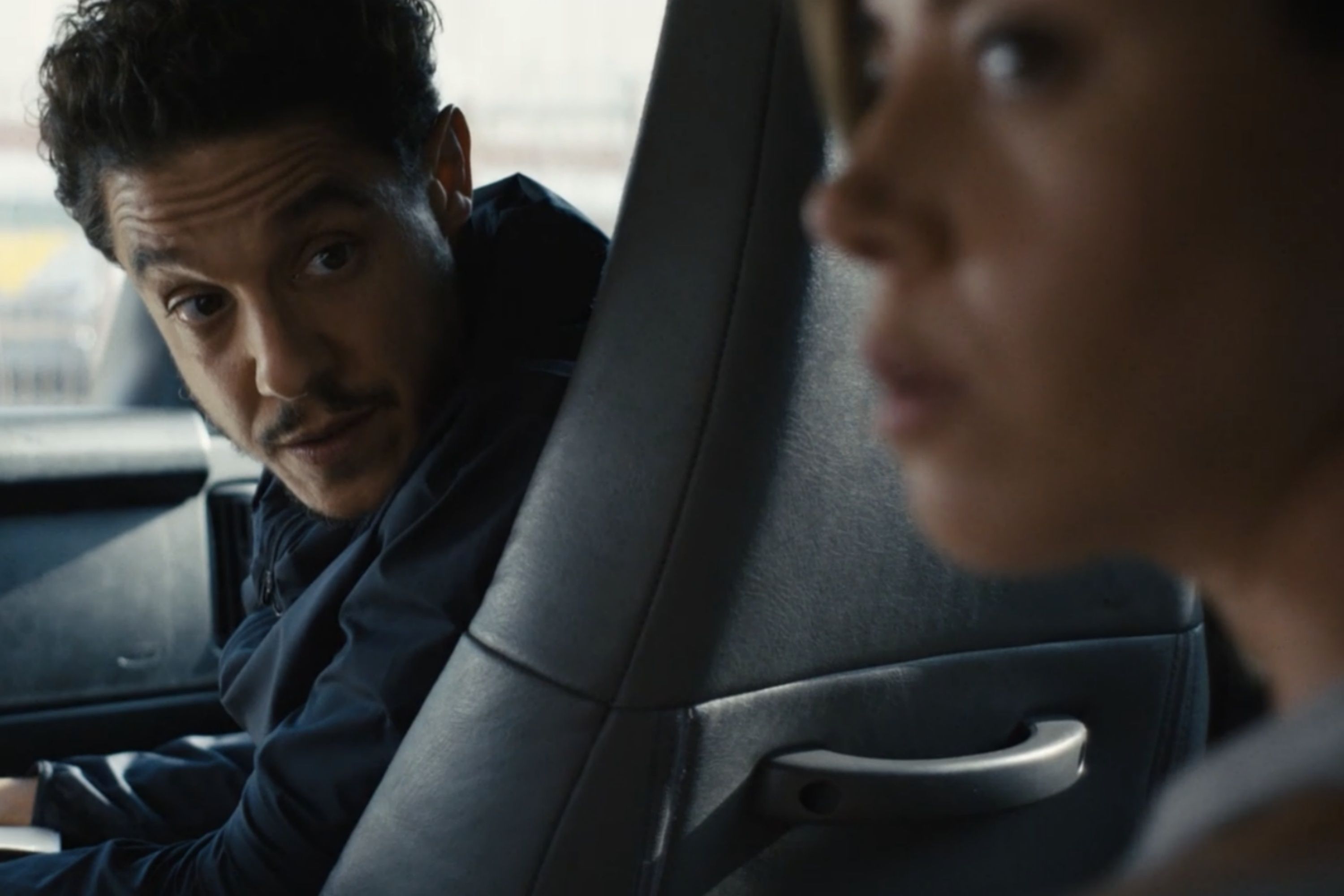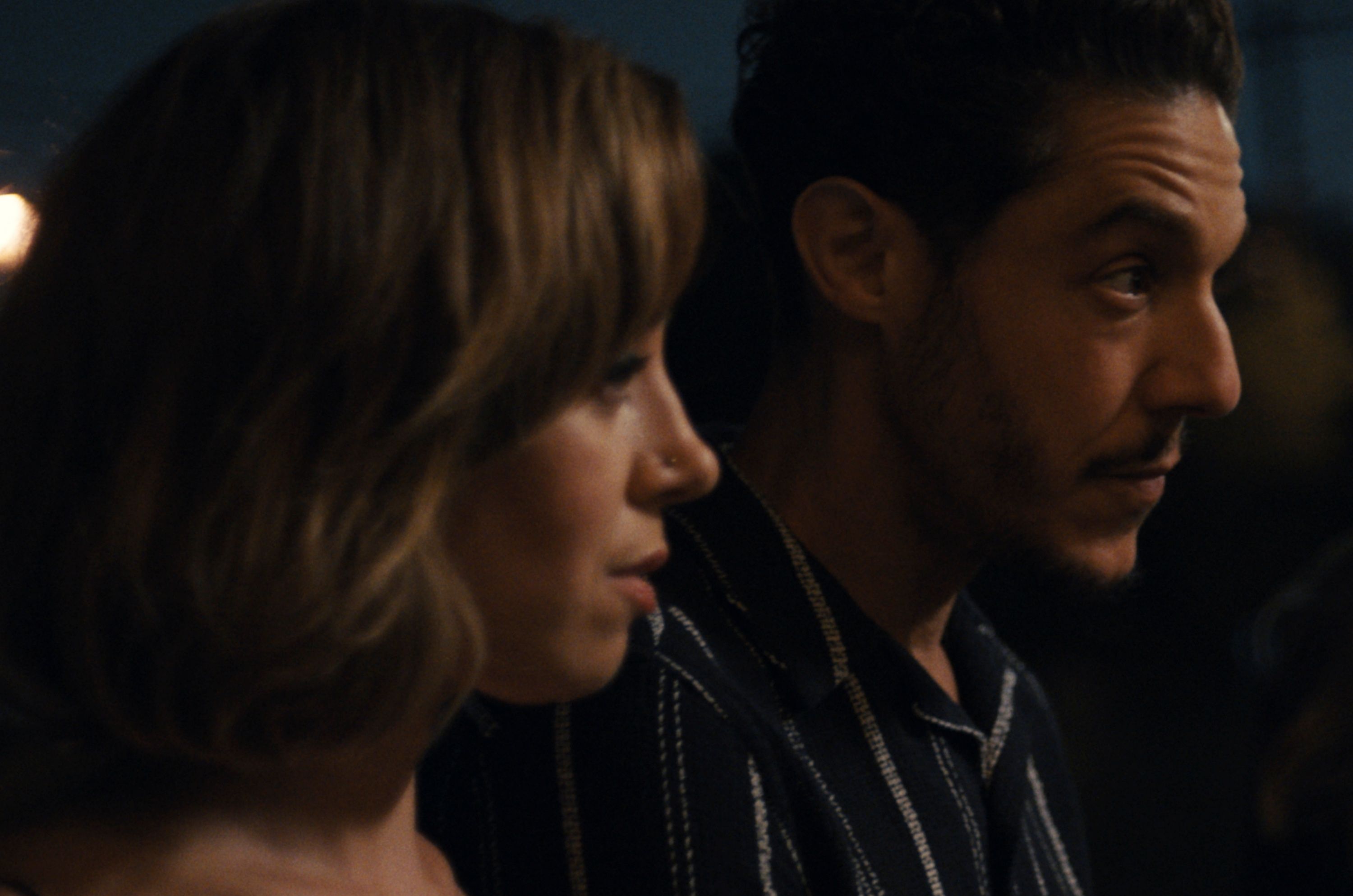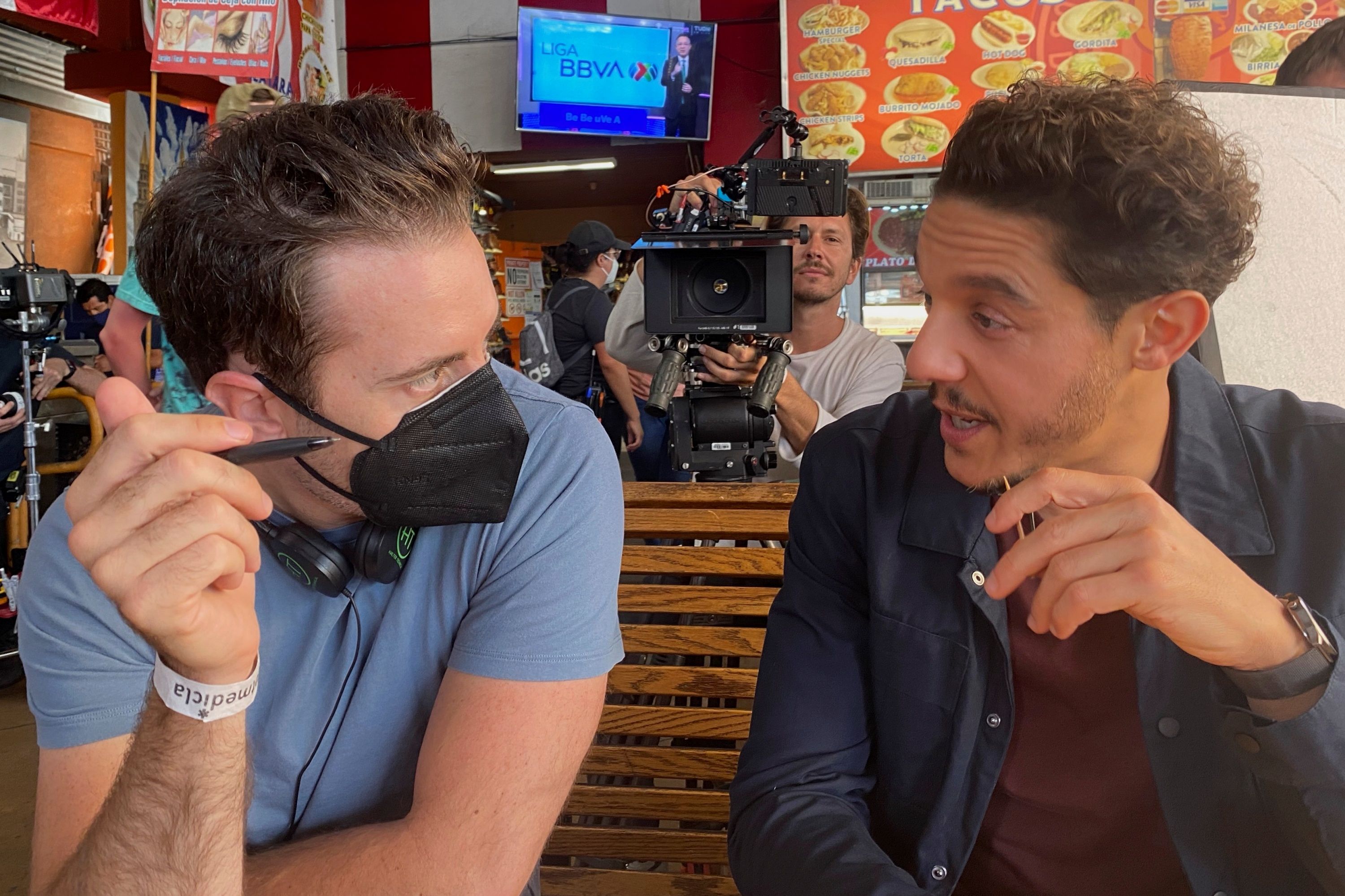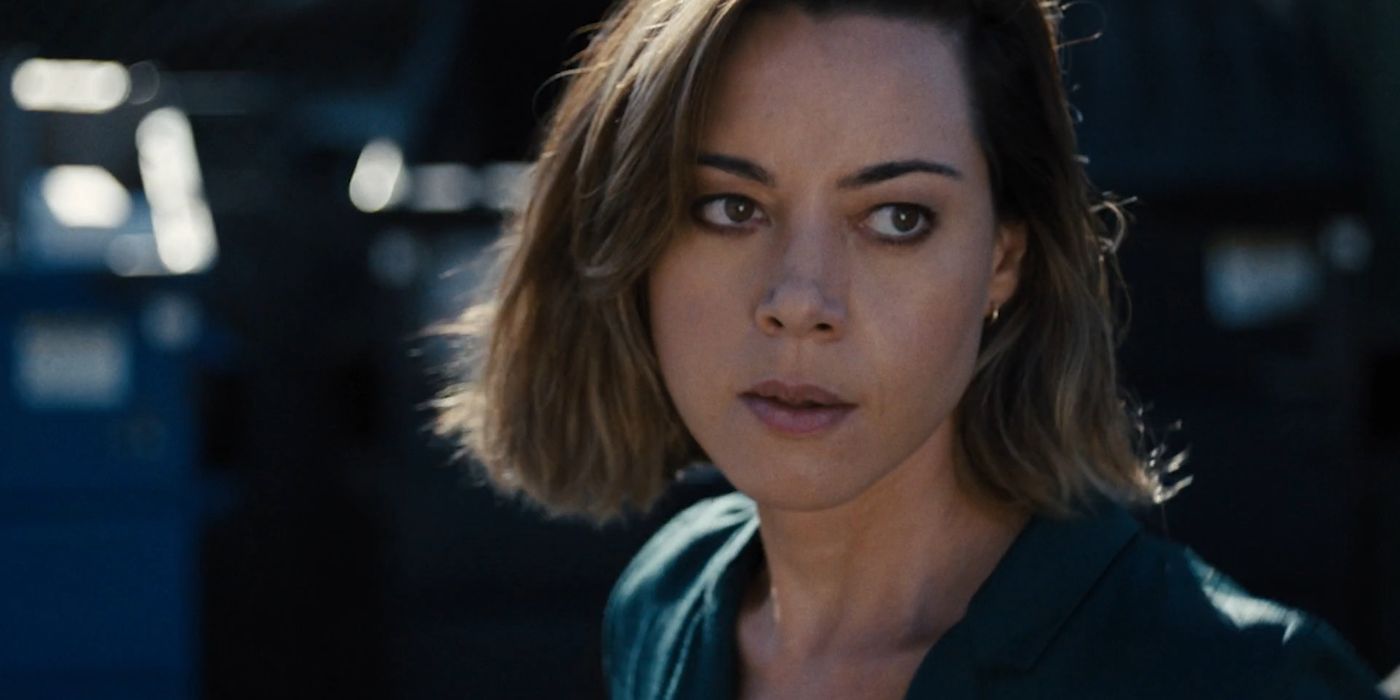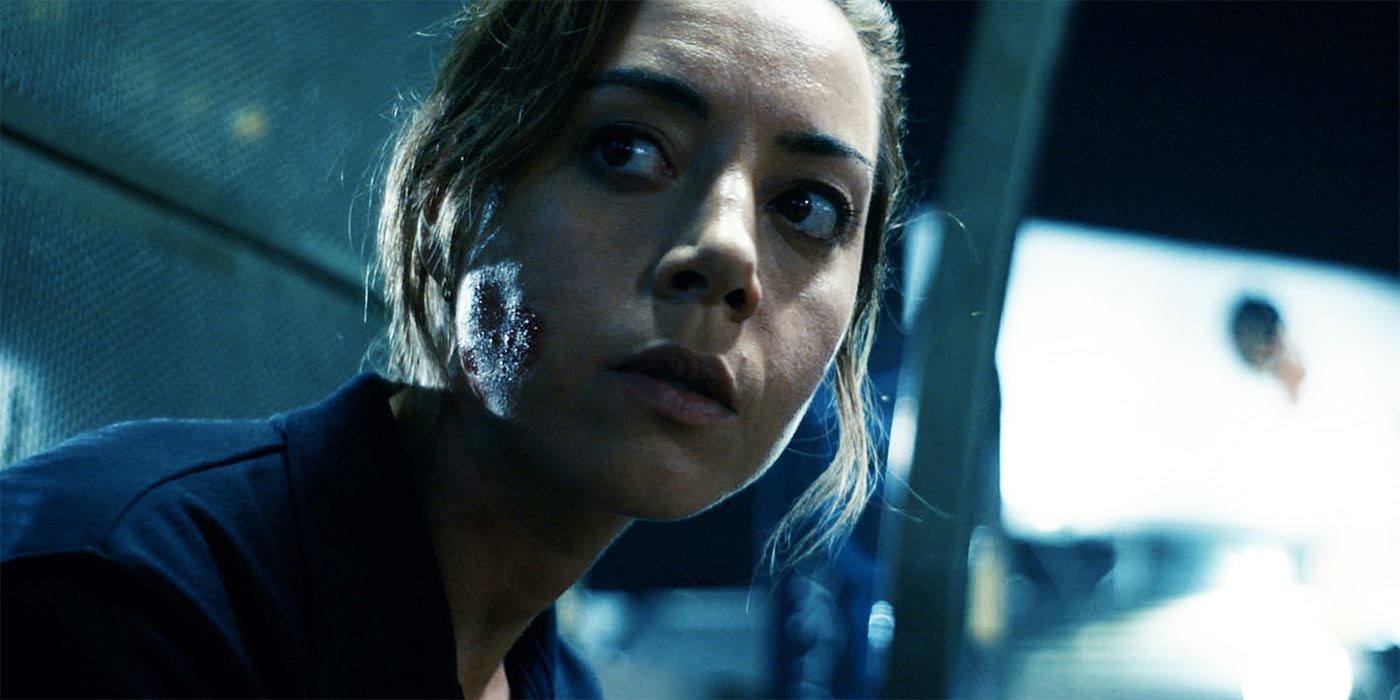[Editor’s note: The following contains spoilers for Emily the Criminal.]With student debt looming and the lack of job opportunities when you have a minor criminal record ever-present, Emily (Aubrey Plaza) is becoming more frustrated about her situation. Desperate for money, she takes a middleman named Youcef (Theo Rossi) up on his offer of quick cash, even though it means pushing past the line of legality as a means to an end, and quickly realizes that together they could devise a plan to take the next step towards a goal that could set them up even bigger and better.
During this 1-on-1 interview with Collider, Rossi talked about how compelled he was by the script and why he wanted to sign on for Emily the Criminal, how quickly he clicked with co-star Plaza, getting to explore the part of himself that’s Lebanese and Syrian in a character for the first time, what he thinks of his character, and how he felt about the film’s ending. He also talked about why he’s always taken the craft of acting so seriously, the project he feels was a real turning point for himself, as an actor, what he learned from his experience on Sons of Anarchy, the heartbreaking moment he learned that they weren’t going to get to go ahead with Season 3 of Luke Cage, and how the nature of this business has him planning for the future but unsure of what’s next.
Collider: I loved the movie, I loved you in this role, and I loved this role for you. I love when an actor who’s already done great work, pops up in a role that’s unexpected because of the type of character or the genre, and I feel like you did that with this. I even feel like Aubrey Plaza did that with this. When something like this came your way, were you immediately intrigued? Was this a script and a character you responded to right away?
THEO ROSSI: Yeah. It’s a great question. This business is so bananas. It literally makes no sense. None of it makes sense. I was filming this other film in Atlanta, and I was super fortunate because I went back to back. I went from this film in L.A. to a film in Atlanta, and then I had gotten a call. At that point, when I’m doing something, I like to just be all in on it, so I usually don’t answer the phone, or do anything like that. But my people had called me and they were like, “Hey, you’ve gotta read this script.” I was like, “I’m not doing that. I’m here. I just wanna do this movie.” And they were like, “No, you’ve gotta read the script. It’s really good.” And I said, “Okay, I’ll do it over the weekend?” And they were like, “No, you’ve gotta read it now. They’re moving fast.” So, I was like, “Okay.” And I sat down and read it. I always know, when I can’t put it down, and I just couldn’t stop reading it. I was like, “Oh, man, I’ve gotta take this with me.” I needed to finish and see what happens. I needed to know what was happening with Emily and Youcef. I was like, “Wow, this is really good.”
At that point, I didn’t know much. Now, I always joke with Aubrey that I didn’t know her work. I knew who she was, but I hadn’t seen Parks and Rec, and I hadn’t seen Black Bear, and I hadn’t seen Ingrid Goes West. I’d heard about a million things, but I’ve got two little kids and I haven’t done anything in eight years. I’d just been with Wreck-It Ralph, all day. So then, I got on a Zoom with the director, John [Patton Ford], and he’s so calm and he’s so to the point, and I love writer/directors. I loved the script, but then I got on with John and was like, “This guy is amazing.” You could just tell, this guy was in the pocket and he knew what he was gonna do. He had already seen all the shots in his head. And then, I got on with Aubrey, and once I did that, it was like someone I’ve known my entire life. We were on for two seconds, and it was like, “Oh, okay, we’re making this movie together.” And then, when I found out she was producing it, because I’ve been there, I’ve always prided myself as an actor that just gets it done. I’m all in, in every single way, and that was something we talked about. I was like, “This is gonna be hard enough, on the budget and the amount of days, so you’ve got me.” I went straight from that other film, where I had blonde hair, so I had to dye my hair, and 24 hours later, I was on Emily the Criminal.
When you start watching this movie, it seems deceptively like it’s a simple movie, but then as things happen and as it gets crazier, I can’t imagine what it was like to have to get all of that done in such a short time frame.
ROSSI: For me, when I was reading it, and it started with the job interview, I was like, “Oh, okay, we’re going against the system here.” I love stuff like Falling Down, and Mr. Smith Goes to Washington, and 12 Angry Men, so I was like, “Okay, this is timely, now, 10 years ago, 20 years from now, five years from now. It’s never gonna change. This is timely, forever.” And she was saying all the things that a lot of people wanna say. And then, one of the most important thing, for me, in my career, being Lebanese and Syrian, I’ve never really played that. I’m a bunch of things. I’m also Spanish and Italian. But I’ve never played Lebanese and Syrian. I was like, “Oh, wow, this is touching on the culture. That’s cool.” The way it read, and the way it plays at 90 minutes, you’re watching, and you’re like, “Huh, okay. What’s happening now?” You’re strapped in on this ride, and then it ends, and you realize you didn’t take a breath for 90 minutes. Those are rarities. They just don’t get written well, like that. It all starts with those words and the passion behind it. We truly love each other, everyone behind this – Tyler [Davidson], the producer, John, me, Aubrey, and everyone in it. That was important.
How defined was this character on the page, as far as how he would be and what the accent would be like? How did you find the right balance for all of that?
ROSSI: I’ve done it a few times. You find the middle ground. I have an incredible dialect coach, who’s worked with all the best, and we always have a system in place. I’m really fortunate because I had direct access to call my cousin and people in Lebanon, and then you start getting into the nuances of it. Did he go to university? What’s his education level? Does he work? It’s very French influenced. And then, after you do all your own research, consistently, within a very short, constrained time frame, because I maybe had a week, you then talk to John about the level. How long has he been in the states? What was it like when he was in school in Lebanon? What kind of music did he listen to? What kind of music was he into when he was a kid because the music is gonna influence how he sounds? You start putting all that together, and you find the level. For me, I had a couple of buddies record my script. They literally read my lines into a recorder, and I listened to it all day. I picked one, and I used that voice, of a friend who was still Lebanon, and who had been back and forth to the States, so there was an Americanization to it. That’s the way I went about it. I learned that from an actor, Brendan Gleeson, who does the same thing. So, that’s how we were able to get to the level that we got.
You’ve talked about how excited your family was about you doing this role because of the cultural representation, but did that reaction change at all, when you told them, “Okay, I’ve got this great lead role, but he’s a criminal running a criminal operation”? Did they get concerned about that?
ROSSI: I guess it’s always in the eye of the beholder. I haven’t seen really any of my characters as bad, and I’ve played some really bad people. It’s more about, what’s the reasoning for what they’re doing? I think Youcef was in a position where he came, Khalil was here first, Khalil offered him a job, and he was like, “I guess this is what we do,” until he started realizing there were other things do. I think that Emily gives him that path. So, to be honest, as crazy as this sounds, he’s probably one of the nicer characters that I’ve ever placed, so I think my family was super happy because they’re used to some really horrible people that I’ve played. He’s with his mom, and he’s trying to buy real estate. He’s a nice guy. He doesn’t kill anyone.
It’s clear that he’s not someone who is doing what he’s doing because he wants to be. There’s just some illegality to it.
ROSSI: For sure. There’s illegality, but he’s not a hardened, mean criminal.
He talks to Emily about what she would do, if she didn’t have this debt and wasn’t in this position. What do you think he would do, if he had a choice?
ROSSI: The way I always played it, and the way I saw it, was freedom for him. Freedom to take care of his mom, freedom to start his own thing with no attachments to anyone else, and freedom to be his own boss, where you’re dealing with as little people as possible. I think that’s all of our goals. The fact that our success relies on other people is hard. In the business we’re both in, and the business that many people are in, they rely on other people. For him, getting out of where he lived, his relationship with his mom, and the little peaks that we get to see into his humanity, he was asking her, almost in a way of discovering his own, but look where he asked her. He’s in the apartment that he wants to buy. He’s in his happy place. So, I think that his was freedom – freedom from Khalil, freedom from the constraints of having no money. That’s his fantasy. We fantasize about things like that, and I think that’s what he was doing, in that moment . . . He is truly another example of someone who’s trying to get the American dream he wants. He’s working hard, whether we agree with it or not, and he wants to do something righteous.
You’re great in this film and in this role, but it doesn’t matter how good of an actor you are, if you don’t believe in yourself. To take a role like this, it seems like you have to have a certain level of confidence in your own skill, as an actor, and your ability to deliver the performance that’s required. When do you feel like you started to recognize what you were capable of, in terms of your craft, and is it ever difficult for you to get past doubts or insecurities when you pursue roles like this?
ROSSI: That’s a terrific question. If I’m not absolutely scared shitless of a role, I don’t wanna do it. I have to get it and go, “I can’t do this.” I have to call five people and go, “I can’t do this.” Not to hear them say, “Yes, you can,” but because I wanna try to convince myself out of it. And then, I realize that fear is what’s gonna make me work double overtime to do it right and to get the work done. I felt, personally, and it’s not taking anything away because this has always been my benchmark for me because I’ve been doing this a long time, but I feel like I didn’t even learn to act until I did True Story, where I played Gene. I was playing someone absolutely the polar opposite of anybody I’d ever played, and I was doing something very different than I’d ever done. I had people that believed that I could do it, and that I could put my own spin on it. After I completed that, everything that I’ve done since has been different.
That was a pivot. You always have pivots. Sons of Anarchy was a pivot. I was guest star actor before that, and I was really just so happy to be there. I was an extra who made it, and then I was a co-star. I had one line on Malcolm in the Middle and I did two episodes of Grey’s Anatomy. And then, when I got to Sons, by the fourth season of Sons, it was a pivot. And then, after Sons, Luke Cage was similar, in a way, but also a pivot because he was different. I’ve engulfed so much about Hollywood history and the concept of acting. I think I’ve read every book and listened to every lecture you can, on the actual craft of acting. I was like, “Oh, okay, I wanna become different people.” People always talk about Juice on Sons, and they talk about other things, and that’s great, but there was always a lot of me in them. I never think I know what I’m doing. It’s called imposter syndrome. You never feel like you’re good at it. You just wonder, “Is this working?” If I don’t believe it, no one else will because the eyes never lie. I have to believe it, and I’ve maybe believed it, a few times in my life. It’s a weird business. You’re only as good as your dance partner.
It’s no coincidence that Aubrey’s phenomenal in this movie. She’s better, so I’m better. She’s at the top of her game, so I am. When I was acting across from Alfre Woodard on Luke Cage, that’s the best. When I was acting across from Jimmy Smits on Sons, that’s the best. Your game goes up. I’m a research fiend. This is all I do. I’m an actor. I’m not a personality. I’m like a court jester. I get weird when people call me by my name. I’d rather you call me by a character’s name. I’m even more weird when people recognize me. I’m like, “I didn’t even look like myself in that.” I’m just trying to be the best artist that I can be. Acting is a weird job.
When you think back on the entirety of the career that you’ve had so far, what was the earliest experience you’ve had on the set that was a really positive experience, that you felt creatively encouraged and inspired by?
ROSSI: I was holding on for dear life, never thinking anything would ever come from it, until I did Sons. And then, when I got around those guys, like Katey Sagal, Maggie Siff, [Ron] Pearlman, Kim Coates, and the whole crew, I started seeing myself, older and years ahead. I started seeing where I fit in. I never knew where I fit in. But then, I saw Tommy Flanagan, who’s had an incredible career with Gladiator and Braveheart, and everything else. Seeing that felt like I was amongst family. It’s probably why we’re all still so incredibly close. I felt like I went home. I was like, “If I listen to Jimmy Smits, if I listen to Kim Coates, if I listen to Walton Goggins, if I listen to these people, I can hopefully catch a little of their spark to go there. I didn’t know that, before 2008. I was just holding on for dear life. Ever since then, Charlie [Hunnam] and I both said that it was like going to college. It was like going to a master’s program, and then you come out and go, “Okay, I’m ready.”
Especially with an experience like that, you must learn so much because you did it for so many years, you were with one character, you were alongside so many of the same people, unless their character got killed off, and you worked with some great directors.
ROSSI: Yeah. Acting is one of those things that, the more you do it, the better you get at it. It’s like anything. Bruce Lee used to say, “I’m not scared of the guy who can throw 10,000 kicks. I’m scared of the guy who throws one kick, 10,000 times.” You get better, the more you do something. The more you’re on a set, the better you are. The more you paint, the better painter you are. You just get better because it becomes more second nature. When you do that show for almost eight years, especially in the case of the character I was playing, he’s the polar opposite of what he was in the beginning, at the end. I got to do all these different faces of this person, and so much credit should be given to the creative team. It was such an incredible, rewarding thing to do because they didn’t even realize that they were setting me up for the entire rest of my career, with that thing that ended in 2014. It’s about the repetition of it. For me, the more I do it, and until the day I’m finished, I don’t think I’ll ever really have it figured out. You have good days and bad days, and you have good characters and bad characters, but I’m never not gonna give a gazillion percent because it’s who I am, as a person.
Was acting something that you always took seriously, as a craft, from day one, or did it take a few jobs before you started taking it seriously?
ROSSI: No, I took it seriously before I even did it. Once I made the decision, when I was in New York, I used to take the train or the ferry in from Staten Island, at the end of ‘98 and ‘99, and I would put my headshots in these bright neon blue envelopes. I had no money, and I would spend the day there, putting them in the mailboxes of agents and casting directors, and trying to get them to the door guys, in the hope that they would help me. I wasn’t in the union. I was just hoping someone would call me. No one ever did. I didn’t know. No one told me to do it, but also, no one told me not to do it. That was just my way of trying to get in. And then, I’d read Backstage, all day. I was going to the Lee Strasberg theater school, but I don’t think I ever got up on stage. I was always nervous. But when I made the decision to do it, I engulfed myself in the business. If there was a documentary, I watched it. If there was anything to do with the business, I learned about it. There was a behind-the-scenes thing on the DVD for that movie Made, and I watched Vince Vaughn do this scene 20 times, or I’d watch Sean Penn doing a scene. DVDs used to have all the bonus footage, so I was study them and read books.
History repeats itself, so I was like, how do I fit in, in this? How do I do this? I was always a major researcher. I always gave it every bit of my all, but tried to pretend that I didn’t. I just wanted it to seem more natural, but the truth is that I was over prepared . . . I would find a few of the older actors that I loved, and I would watch every movie they’d ever been in because I wanted to see how they acted different in them, like Gary Oldman and Phillip Seymour Hoffman, and people like that. I would watch them, and I would continue to watch them. I would learn so much in watching one person’s journey through their career because you could see them get better. It was amazing to see. If you really paid attention in the chronological order of their career, you could watch them get more comfortable, and it gave me the faith to know that I would get there one day . . . No, I’m at the point where I absolutely love acting, but if Emily the Criminal came to me even six months before, I wouldn’t have be able to do it.
What influence do you think Youcef had directly on Emily, and vice versa? By the end of the film, how much do you think they had changed each other?
ROSSI: There can be an experience in your life, that just wakes you up. There’s always something in our lives, before we’re done with all this, that wakes you up. I think he was woken up by her. I think he was in autopilot, and I think she was in autopilot. She was trying to figure it out. She could only see the ground. She was trying to figure out, “How do I get out of this student debt? I’ll do anything to get out of it. I have to figure out a way to get out of it.” She wasn’t thinking about anything else. He was in autopilot. You could tell, in the beginning, he was just giving the speech that he’s given a million times, and then he sees her. In that moment, where she gets up to leave, he’d probably never addressed someone who was leaving, but there was something different about her, without them even having had an interaction, just on looks, just on eyes, and just on connection.
Their influence on each other is that they both woke each other up. You could say that he might have woken something up in her that probably wasn’t terrific, and you could say that she probably woke something up in him that wasn’t beneficial to the life he was living. Maybe is made him softer. “You let people step all over you,” is what she says to him. So, I think that they woke something up inside each other, and I think that was also the same for Aubrey and I, when we were working together. You would think, in this business, that when people come to the set, they love it, and that’s just not necessarily true. Some actors don’t even like acting. It almost looks like it’s a hassle to them, to be on set. I’m there early and I’m like, “Okay, let’s go! What are we gonna try today? Let’s have some fun.” Aubrey and I were so intertwined in that thought process, where it was just two kids who got let out for recess, and it showed in the characters. But I think a lot of people would be amazed at how many people are not like that.
The ending of this movie is interesting because we don’t know for sure what the ending is for your character. We get a much more definitive ending for Emily than we do for Youcef. Did you have a definitive ending for him, in mind for yourself?
ROSSI: Oh, we shot a different ending. I won’t go into what it was, but there was definitely more of a definitive ending. But he’s still out there. I think I’ve died more on screen than Sean Bean. I die in everything that I’m in. I think Kim Coates might hold the second place record, but I might outdo him, by the time I get to his age. It’s weird to say that you like when your characters die, but it ends the story. When they’re just floating in the abyss, if you have a major love for them, like I do, like Shades on Luke Cage, I read the Season 3 that didn’t happen, and he’s still out there. With Youcef, in the script that we shot and the script that I read, I knew the ending. Knowing that he’s kind of okay, in a way, gave me an ending. But when they go, and it’s over, you can move on. The other way, sometimes they come to you in a dream, or someone mentions them, and you’re like, “Oh, yeah, that guy. What’s he doing right now?” With Youcef, with that ending, it’s not about him. This is about Emily. The ending, with her on that beach where you could hear the breath and feel the calmness of how that other life is past her and that manic chaos that she was feeling when we introduced that character is now gone, and a part of that is because of Youcef. Her closure is his closure.
You mentioned reading the Season 3 of Luke Cage that never happened. What was it like to have an experience like that, where you read it, but then never got to actually do it?
ROSSI: It was heartbreaking because I loved that show. I loved the musical actors. I loved every actor on it. We really just enjoyed each other. You’re talking about some of the greatest actors, with Mahershala [Ali], Alfre, [Mike] Colter and Simone [Missick], who are just incredible people and amazing actors. That was a hard one because it was really out of nowhere. It was like, “Wait, what?! They’re all gone? That’s it?” It was like, “No, they’re really successful. We trended at number one for 10 weeks. What else could you need? That’s impossible. It’s not like people aren’t watching them. It’s at 97% on Rotten Tomatoes. It’s a good show.” But they were all gone. The reasoning and the way it went down was really strange. That’s the best way I can put it. It almost didn’t feel real.
I was in Austin, at the time, and I was getting ready to move to New York. I had an apartment and I was ready to go, and then it was like, “Oh, no, it’s not happening.” I was like, “Okay, so then when are we doing it? We’re pushing again?” And they were like, “No, it’s not happening, ever.” It didn’t make sense. Cheo [Hodari Coker] and I had already talked abut what was gonna happen. They’d just done The Defenders. The worlds had just come together, so it was really odd. I’ve probably experienced six versions of that, since that show, but I had never experienced a version of that, before that show. I think it really does show the state of the business, but I’ve experienced many things like that since then, like movies where I was in the airport, and then they were no longer doing it and I had to go back home. That was really odd because I really enjoyed Shades. I like to play characters that are unpredictable. If you can keep people guessing, that’s why they wanna watch the screen, and he was definitely one that kept people guessing. He wasn’t just one thing, and I was really excited with the way they were gonna go with Season 3.
Do you know what you’re doing next?
ROSSI: I’m on this major indie kick. I love indies. I never thought I’d say this, but I love first-time, second-time, and young directors. I have four coming out, with all different ranges. I think the next thing coming out is that film with Sadie Sink and I, Dear Zoe, where I play her dad, and it’s got Jessica Capshaw and Justin Bartha. It’s really cool, and it’s set in 1999. I’m interested to see how that comes out. Sadie is the greatest. I think she’s gonna be one of the best actors to ever do this. I have a bunch of indies coming out after that, and then we’ll see. I’m supposed to direct a film coming up, within the next few months, but we’ll see. Everything is a, “We’ll see.” I always say, you never know anymore. This is not five years ago. Everything is in flux. I’ve gotten older and wiser, and I just go, “I don’t know. We’ll see.”
This business is changing so rapidly that I’m just gonna do what I did in the beginning of my career, which is to hold on for dear life. I just have a couple more hours of experience, and I’m trying to be the best version of myself, as a person and as an actor. The one thing I’m always gonna do, no matter what it is, whether it’s one scene, one line, one movie or a trilogy, is give every single ounce of myself because it’s not about me. It has nothing to do with me. If someone takes the time to watch something that I’m in, then I owe them because that’s my job. I’m just there to entertain someone who happens to be on a break from what they do, so that’s what I’m gonna continue to do. I’m just gonna always take changes and do the best I can with the characters that I play, and I’ve been really fortunate to play some really cool characters.
Emily the Criminal is in theaters and available on DirecTV.

